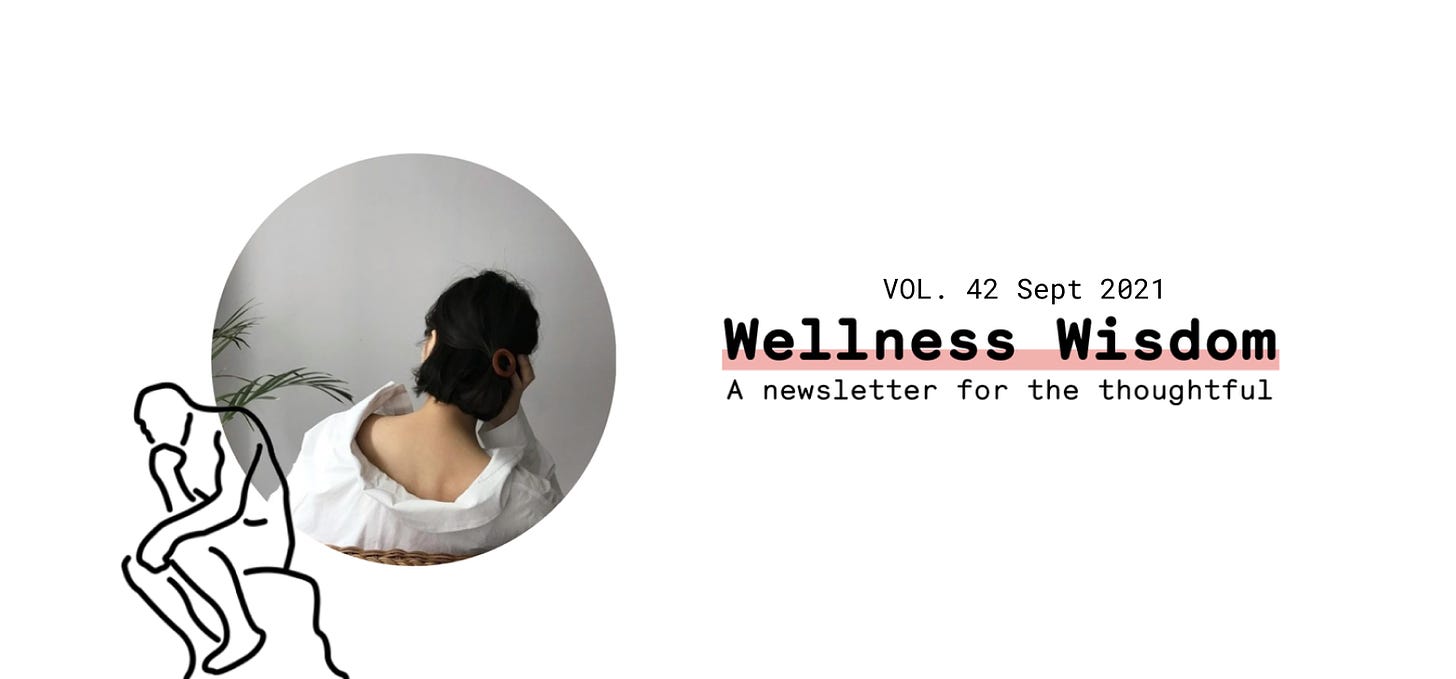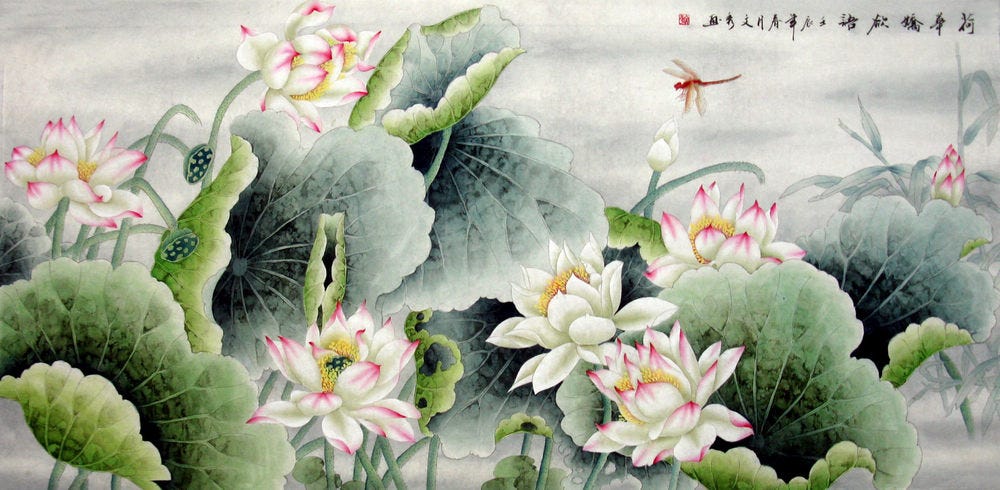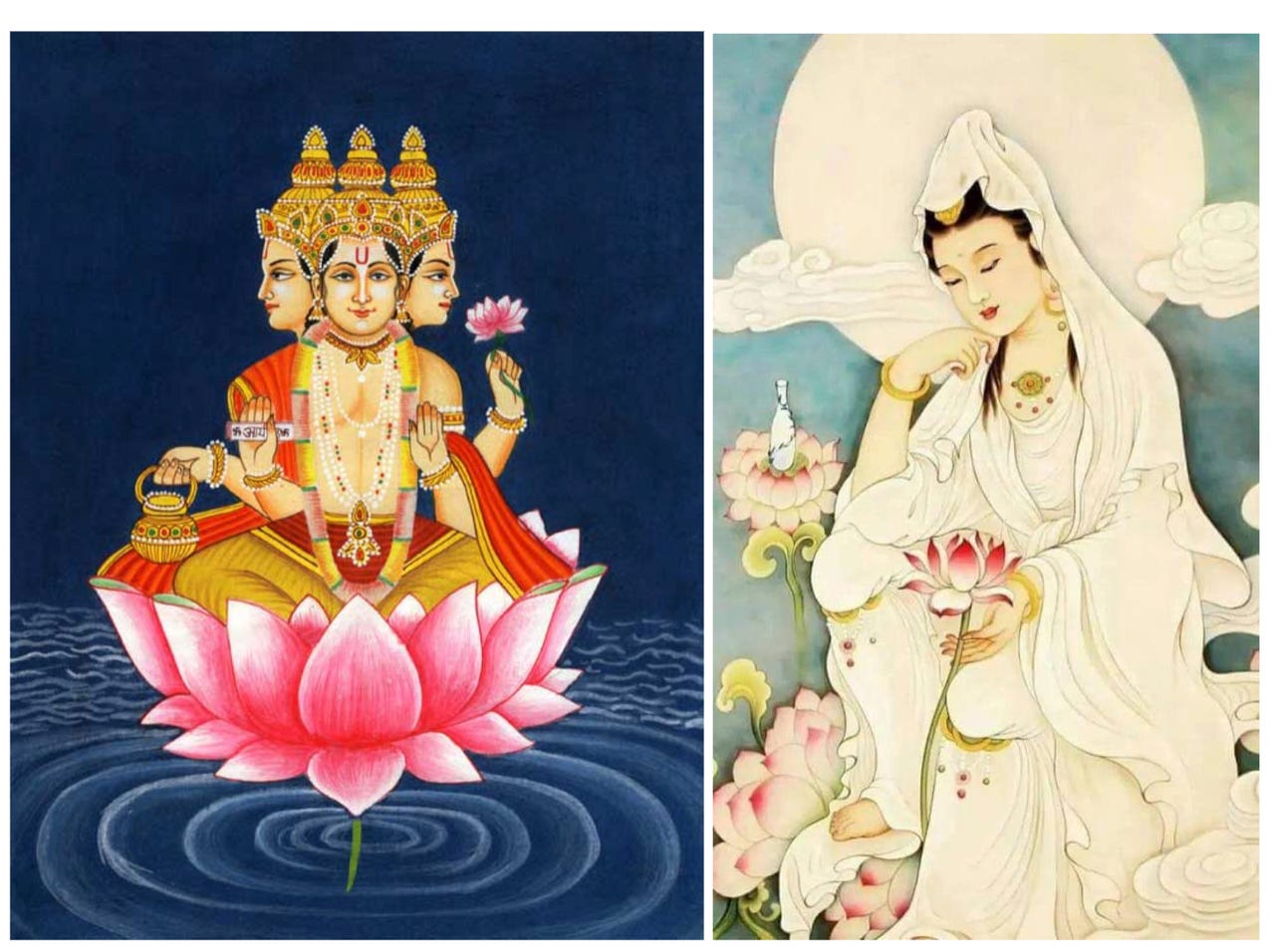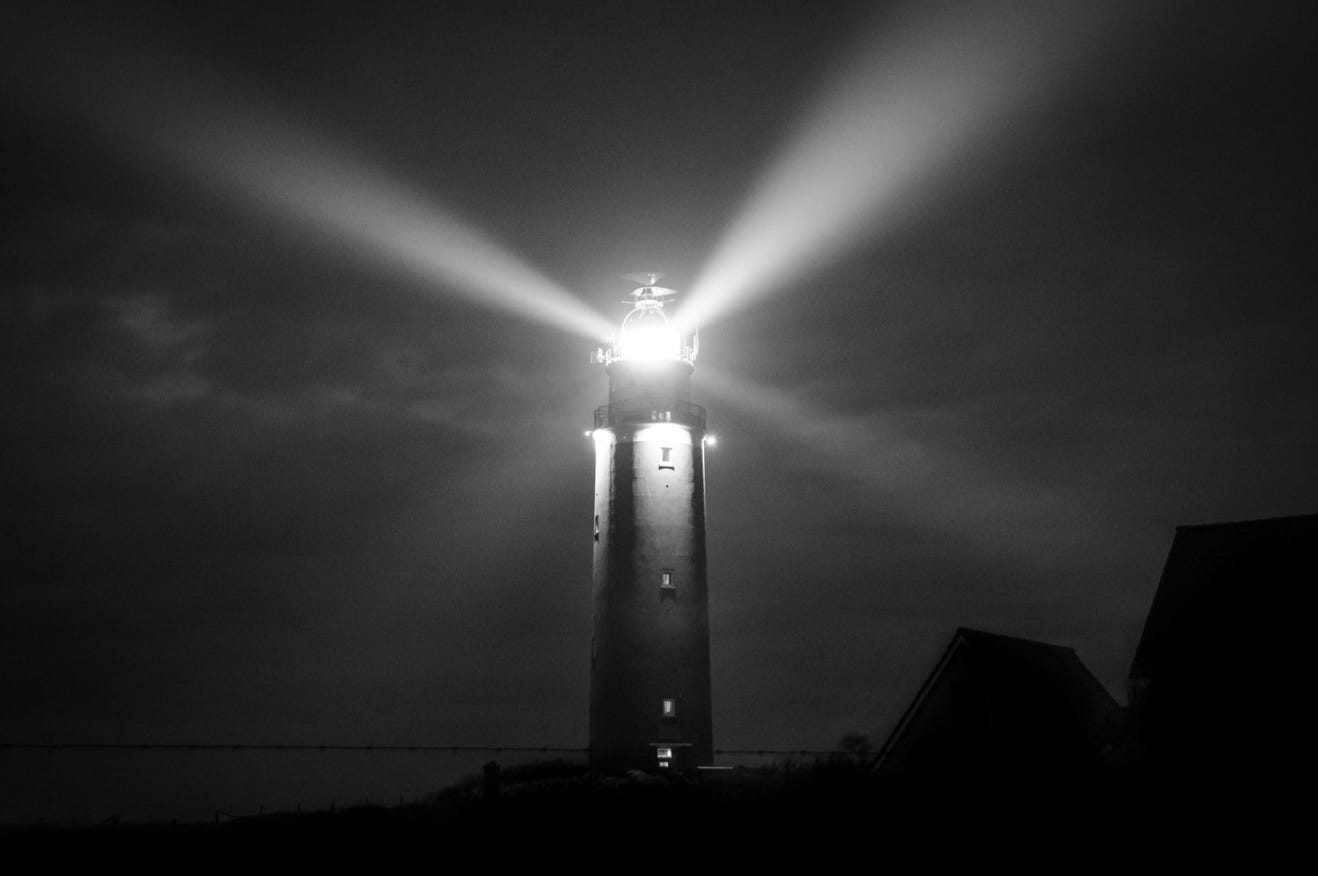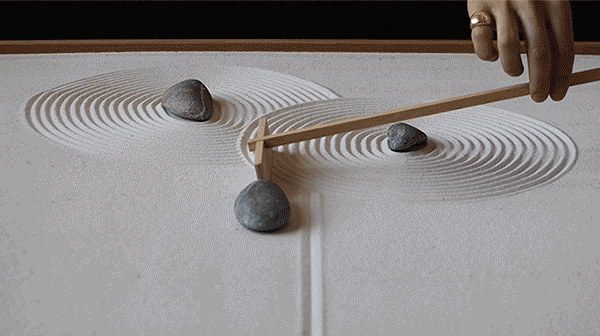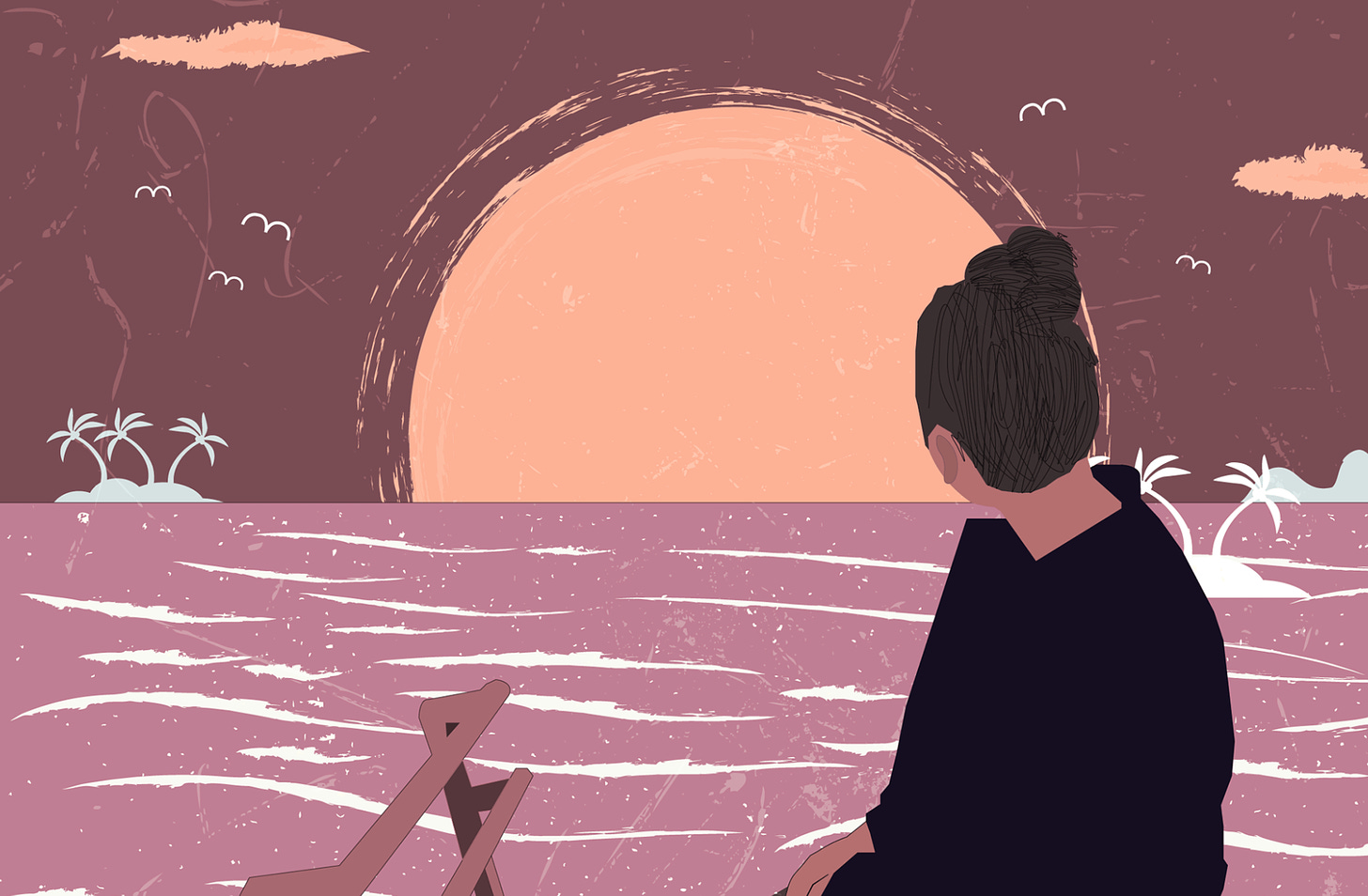Welcome to Wellness Wisdom - A newsletter for the thoughtful by Patricia Mou. A medley of resources and thoughts on wellness start-ups, personal development, mental health and philosophy.
Support this publication by joining me down the rabbit hole🕳🐇
Hi lovely humans,
It’s been a while 👋 This is the longest time i’ve gone without writing since the start of this newsletter! I was pretty pooped after The Third Space series and shifted my focus onto getting settled in NYC, raising a puppy (it’s unsurprisingly very hard work), shifting into a new product area at Calm, and expressing myself at rabbit holes and the third space.
Longer periods of forgone writing undoubtedly give me more material to shift through and make sense of. One topic that’s been at the forefront of my mind for the past 2+ years is the tension between doing and being.
It’s a gnarly one that i’ve been putting off for the longest time. But recently, I begun to see the pieces of fragmented inquiry a bit more clearly. Newfound language drawn from reading around the topic have given me the semantics to begin a life-long conversation. The essay today is the beginning of that conversation.
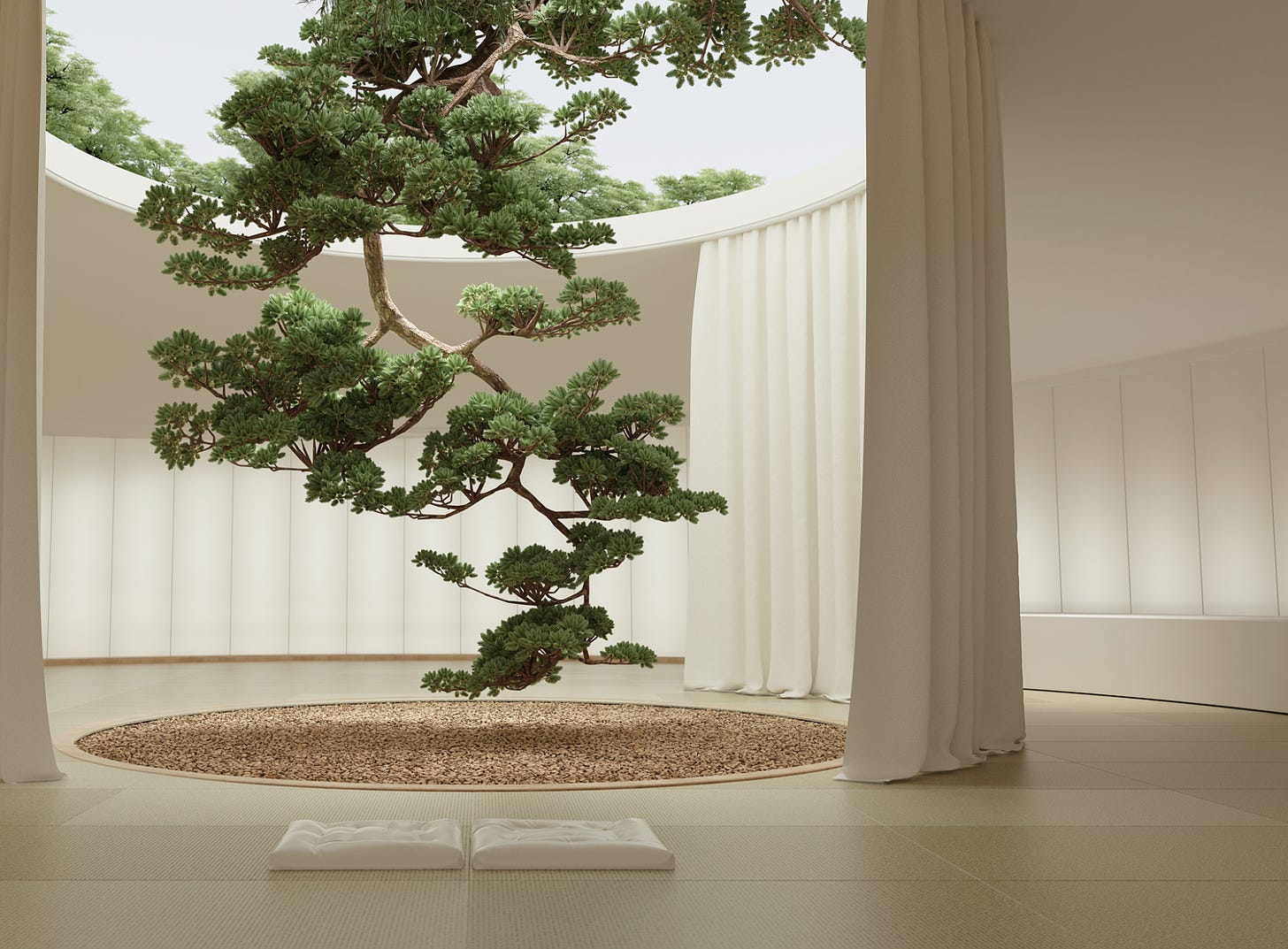
I imagine that the bane of human existence is balancing the tension between doing and being. To know when to pause is to reflect on the road before you and determine whether to readjust your sails. To know when to act is to muster the activation energy to go against inertia and forge your own will.
Act without pause, and you potentially lose your authentic self to external forces in the process, waking up one day to a stranger in the mirror. Reflect without action, and get stuck in a bubble of time, forever ruminating on prior scripts that have turned stale.
—
As I've gotten to know myself better over the years, I’ve seen my life more as seasons as opposed to a culminating plot line of doing.
There are seasons of frenetic creation and consumption. Then there are seasons of containment and reprieve. I withdraw from all stimuli to examine the jigsaw pieces before me - discarding and merging them to create a new map. The seasons of creation and reflection oscillate cyclically like the weather - sometimes in monthly increments, other times, all within a day.
Yet one thing I haven’t been able to quite ping down is how to balance doing and being simultaneously, or at least a little more seamlessly.
I love nothing more than being a recluse, withdrawing myself from the world of egoic striving and status games for weeks at a time. However, like a monk with commitment issues, I also am energized by the froth of knowledge and art bubbling from the cauldron of worldly self-actualizing humans.
—
On one side we have the world of work, in which we are whirled rapidly round. And on the other we have the world of calm, retiring renunciation: everything is peaceful around, only self and nature, with her animals and mountains. Between relative doing and non-doing, I whip back and forth between these polarities.
So, to be a monk or a capitalist?
In setting out to ask this question, I soon realized it was the wrong question.
Karma Yoga is a philosophy that claims the answer is not “either/or” but rather “yes/and”.
Karma means “action,” and Karma Yoga is performing action without attachment to the outcome. It’s a way to be in the world, without being of the world. To dutifully do your work, whilst attaining self-liberation from the ego concurrently:
The ideal woman is she who, in the midst of the greatest silence and solitude, finds the intensest activity, and in the midst of the intensest activity finds the silence and solitude of the desert. She has learnt the secret of restraint, she has controlled herself.
She goes through the streets of a big city with all its traffic, and her mind is as calm as if he were in a cave, where not a sound could reach her; and she is intensely working all the time. That is the ideal of Karma- Yoga, and if you have attained to that you have really learnt the secret of work.
-Swami Vivekanada
Echoed by Emerson:
It is easy in the world to live after the world's opinion; it is easy in solitude to live after our own; but the great (wo)man is s/he who in the midst of the crowd keeps with perfect sweetness the independence of solitude.
- Ralph Waldo Emerson
Karma Yoga originates from Vedantic philosophy. In addressing the 5 causes of suffering, Vedantic philosophy gives us 4 paths that ultimately lead to the cessation of it and thus “enlightenment”:
[doing work in the world] Karma Yoga - to perform action without attachment to the outcome. Following one’s true purpose and accepting whatever comes.
[think] Gyana Yoga - where reality is discovered through insight, practice and knowledge
[love] Bhakti Yoga - love and devotion to God
[path of self-discipline and practice] Raja Yoga, which consists of eight stages leading to self-realization and liberation
In America, secularism is on the rise and becoming a monk doesn’t pay the bills, so Bhakti and Raja Yoga may not be as accessible.
Karma yoga enables us to work for survival, but also attain self-realization in the process. The middle way between monk and capitalist.
The main teaching of karma yoga is to do work without attachment. To let huge actions ripple from the muscles and the brain, but not let them make any deep impression on the soul.
How? To help others but never think that they ought to be grateful, or that it ought to bring you fame and riches. To do for doings sake, and not for its egoic fruits. This is the middle path to peace of mind, while carrying forth our will to work. Through the machinery itself is the way out.
Not letting work leave an impression on your soul means not identifying with it.
With the sense of possession comes selfishness, and selfishness brings on misery. This flies straight into the face of everything we’ve been conditioned to believe: be the “x” guy/gal on twitter, have a 10 year plan, declare your life’s work in every admissions essay and job interview. Having an identity viscerally soothes us and tangibly opens doors.
But the nuance is seeing identities as clothing we put on to navigate the world, while the soul beneath is pure and devoid of labels. Why? Because problems arise when we think we are the clothes we wear or even the bodies beneath.
The body is neither yours, nor mine, nor anybody’s. They come and go by the laws of nature, but we are free, standing as witnesses.
When we understand this fundamental truth, we unclench the fist that wraps around our stated vocations. We work fluidly and in flow with what compels our souls from a place of love as opposed to greed. We can do without attachment.
In the first place, a man who can work for five days, or even for five minutes, without any selfish motive whatever, without thinking of future, of heaven, of punishment, or anything of the kind, has in him the capacity to become a powerful moral giant.
It is hard to do it, but in the heart of our hearts we know its value, and the good it brings.
It is the greatest manifestation of power--this tremendous restraint; self-restraint is a manifestation of greater power than all outgoing action.
- Swami Vivekanada
Getting to this kind of soul-aligned work takes hard self-inquiry, as work in exchange for purely capital and status is abundant.
We must reflect on the type of work we do when we feel the least selfish. This could be what naturally pulled our curiosities when we were children. It could be digging into our past and present to find the unifying thread that links our most intrinsically energizing experiences.
Upon reflection, we shall find that in our first few years of life, our motives are almost always selfish and driven by the intellect. But gradually this selfishness melts away with persistence to soothe what aches the heart.
Plunge into the world, and then, after a time, when you have suffered and enjoyed all that is in it, will renunciation come; then will calmness come.
So fulfill your desire for power and everything else, and after you have fulfilled the desire, will come the time when you will know that they are all very little things; but until you have fulfilled this desire, until you have passed through that activity, it is impossible for you to come to the state of calmness, serenity, and self-surrender.
- Swami Vivekanada
We must pass through selfish work first to understand its inability to satiate the depths of our soul.
The tricky thing is that the short-term worldly returns of fame, power, and money blind us from the fact that we’re on a local maxima. They prevents us from making this passage through the machinery to clearer pastures.
Even helping others out of love, but with attachment to status or fame as a result, can be the most egregious - despite its unselfish angle. (“I’m helping others so it must not be selfish”). Unbeknownst to its beholder, it is simply pride insinuating itself in the form of virtue.
To avoid this trap we must realize that in helping the world, we merely help and purify ourselves. It is a privilege to help others, as not one beggar or soul depends on our charity or kindness. In doing good for others, we seek to forget ourselves. We must not expect returns for our service.
—
So easily we maintain the charade of selfish work in order to do what best pacifies the ego or secures our place in the social hierarchy. Even when we’ve gone beyond selfish work to so-called “unselfish work”, it can still be selfish work below the surface.
Regardless of the various formats of work we pursue, the ultimate form of work that liberates us is the one we identify in the least, thus becoming unattached to its fruits.
By doing this we fulfill Karma Yoga ideals. We achieve our freedom to follow the steps of the sage, with one foot in the world of work.
Act always as if the future of the universe depended on what you did,
while laughing at yourself for thinking that whatever you do makes any difference.
-Mihaly C.
—
Love says 'I am everything.'
Wisdom says 'I am nothing.'
Between the two, my life flows.
— Sri Nisargadatta Maharaj
I’ll leave you with one last thing: the lotus flower.
It is an aquatic plant that plays a central role in the art of all major religions such as Confucianism, Hinduism, Christianity, Jainism, and Buddhism.
Despite growing from the mud, it is pure and unstained. Its stalks twist and turn through murky waters to find reprieve on the pond's surface. Atop of the water a flower blossoms and opens its magnificent petals. In doing so it symbolizes the realization of its inner potential and expansion of its soul.
I love the lotus because while growing from mud, it is unstained.
— Confucian scholar Zhou Dunyi 1017–1073
—
One who performs his duty without attachment, surrendering the results unto the Supreme Lord, is unaffected by sinful action, as the lotus is untouched by water.
— Bhagavad Gita 5.10
In the same way that the water cannot touch and adhere to a lotus flower; so shall we strive to be in the world.
[essay] You need a mission in life
I loved this piece so much. It’s a reminder that there’s a thousand games you can opt into playing on this planet, but the only one worth playing is your own.
[film] Human
Filmmaker Yann Arthus-Bertrand collected emotionally stirring stories from 2,000 women and men in 60 countries compiled them into this enchanting documentary. Hearing from such a collection of wide-ranging backgrounds speaks to a fundamental unity we all share in the human experience.
[artist] Yuki Kawae
The Bay Area designer records meditative footage of wide-toothed prongs and dense rakes that scrape across beds of white sand, creating intersecting loops, fractals, and other organic shapes
[ESSAY] Keeping your head down
When I scroll social, I should just hope that those individuals are living a life that is truly worth living – one that makes them proud. The good life, to me at least, is living a life that makes you proud. No one else.
That definition of success is entirely up to you. When the weight of the world feels particularly heavy, or I’ve taken on entirely too much, I remind myself that I’m spending my time exactly as I set out to. When you live a life entirely in line with your goals and values as a person, spending a single minute fantasizing about throwing in the towel feels like a poor use of time.
[ESSAY] It’s Okay to Outgrow the Life You Thought You Wanted
What are some things you thought you wanted, but upon getting there, found it wasn’t for you and the courage to pivot?



Thank you for being part of The Wellness Wisdom newsletter today.
I’m Patricia and have a full-time job but curate this newsletter in my free time as a labor of love.
This newsletter is free because I believe everyone deserves to have access to wellness resources. If you want to support this publication, join me down the rabbit hole 🕳🐇.



